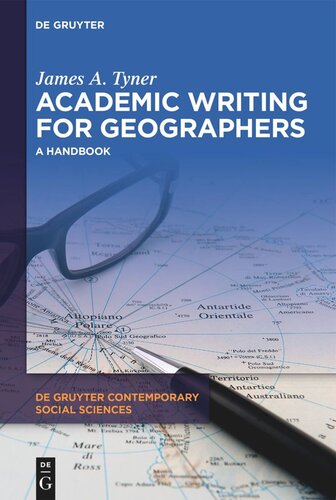

Most ebook files are in PDF format, so you can easily read them using various software such as Foxit Reader or directly on the Google Chrome browser.
Some ebook files are released by publishers in other formats such as .awz, .mobi, .epub, .fb2, etc. You may need to install specific software to read these formats on mobile/PC, such as Calibre.
Please read the tutorial at this link: https://ebookbell.com/faq
We offer FREE conversion to the popular formats you request; however, this may take some time. Therefore, right after payment, please email us, and we will try to provide the service as quickly as possible.
For some exceptional file formats or broken links (if any), please refrain from opening any disputes. Instead, email us first, and we will try to assist within a maximum of 6 hours.
EbookBell Team

4.4
102 reviewsThere are many ‘how-to’ books on writing for academics; none of these, however, relate specifically to the discipline of geography. In this book, the author identifies the principle modes of academic writing that graduate students and early-career faculty will encounter – specifically focusing on those forms expected of geographers, that is, those modes that are reviewed by academic peers.
This book is readily accessible to senior undergraduate and graduate students and early-career faculty who may feel intimidated by the process of writing. This volume is not strictly a ‘how-to’ or ‘step-by-step’ manual for writing an article or book; rather, through the use of real, concrete examples from published and unpublished works, the author de-mystifies the process of different types of scholarly pieces geographers have to write with the specific needs and challenges of the discipline in mind.
Although chapters are thematic-based, e.g., stand-alone chapters on book reviews, articles, and books, the manuscript is structured around the concept of story-telling, for it is the author’s contention that all writing, whether a ‘scientific’ study or more humanist essay, is a form of story-telling.